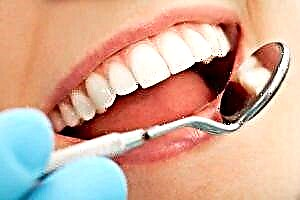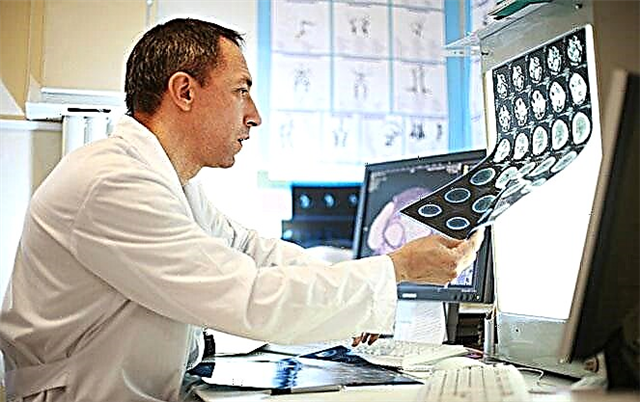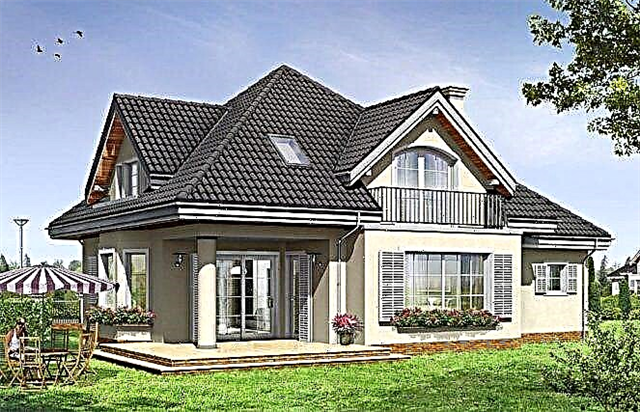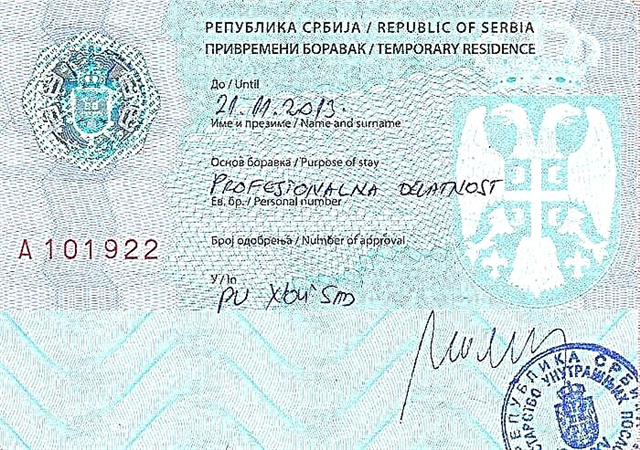Highly developed European dentistry has long attracted those who have not only a desire to cure their teeth with high quality in comfortable conditions, but also have enough funds to pay for treatment abroad. And one of the countries that have become famous for their dentists is Germany. Dental treatment in Germany is popular due to the highest quality, reliability, durability, continuous improvement of methods of dental treatment and prosthetics.
Benefits of dentistry in Germany
The dental industry in Germany is one of the most innovative areas in German medicine. This is due to the rapid and continuous advances in digital technology. And the presence of a fairly extensive network of dental clinics and medical centers makes it possible to provide services on time and without tedious waiting in line.
The indisputable advantage of dental treatment in Germany is the provision of high quality services to each patient, which are documented. This implies the issuance of a guarantee for the installation of a seal, prosthesis, implant. And the presence of modern electronic technologies allows you to carry out any manipulation at a high level.
Dental laboratories in this country are characterized by excellent equipment: high-quality dentures, crowns, and implants are manufactured here. It is also widely used in dental clinics such a material as ceramics based on zirconium dioxide, the advantages of which are high biological compatibility, aesthetics, strength and durability.
Technically equipped, modern and innovative equipment, which is regularly updated every few years, ensures accuracy, reliability, safety during any dental procedure - from polishing teeth to performing osteoplastic operations. And, of course, it is worth considering the high professionalism and many years of experience of German dentists, who will not only help you get a brilliant smile, but also save you from any dental problem for the next few years.
The range of dental services in German clinics is really wide and covers all areas of the industry:
- therapeutic dentistry - treatment of teeth and root canals, whitening, restoration, polishing, remineralization of teeth;
- dental prosthetics;
- dental surgery, including the use of maxillofacial surgery;
- orthodontics - bite correction;
- treatment of periodontal disease using tooth-preserving techniques;
- dental implantation of any complexity.
German dentists do local anesthesia without using a syringe with a needle - instead, they use electronic devices. And the latest advances in molecular biology make it possible to carry out bacterial diagnostics of the oral cavity before dental treatment.
Timely diagnosis and prevention of dental problems
The success of treatment largely depends on accurate and high-quality diagnostics. To avoid problems with the health of teeth and gums, it is necessary to regularly use hygiene and preventive procedures. Of course, home hygiene products cannot guarantee protection against possible oral problems. Therefore, the prevention of periodontal disease and various dental diseases is of primary importance in German dental clinics. At the same time, experienced specialists develop individual programs of preventive measures.
Since the purpose of a preventive examination is to identify and prevent the development of the disease in the early stages, it is necessary to carry out a comprehensive and comprehensive diagnosis:
- With the help of laboratory studies, the mucous membrane of the oral cavity (lips, tongue, palate, cheeks), salivary glands are analyzed, pathogenic microorganisms are detected in periodontal diseases and diseases of the mucous membrane, the composition of plaque, the contents of periodontal pockets are analyzed.
- DIAGNOdent laser diagnostics makes it possible to assess the condition of the teeth and diagnose caries using optical magnification (magnifier, microscope, illumination) with a probability of 95%.
- Index diagnostics of dental diseases consists of several groups of indices:
- to assess oral hygiene;
- to assess the condition of the gums;
- to assess the condition of periodontal tissues;
- to assess the condition of the hard tissues of the teeth.
- The jaw joints, chewing muscles, bite are examined.
- Radiovisiography - X-ray, but with a reduced dose of radiation by about 15 times. The result is clear and high-quality images that are displayed on a computer screen.
- Computed tomography for obtaining a three-dimensional image of the jaw from all sides and diagnosing inflammatory, tumor diseases, traumatic injuries. This method is important for implantation and subsequent assessment of its stability.
- To identify the risk of developing periodontitis, testing with a DNA probe is used. This test allows you to determine the amount and density of pathogenic bacteria in the gingival pockets. The procedure is painless and is performed using a paper strip.
- To diagnose caries in the early stages, which are not amenable to visual determination, the method of vital staining of damaged areas is used. This technology is based on staining the carious surface of tooth enamel, with the application of a specialized solution to it.
- Some German clinics offer genetic testing for oral disease susceptibility.

Aesthetic dentistry in Germany
Aesthetic dentistry in Germany is aimed not only at eliminating defects and pathologies of the dentition, but also at achieving an ideal cosmetic effect. After all, many patients want to have a beautiful and healthy smile, if desired, decorated with a rhinestone or a precious stone.
Aesthetic filling implies not just filling the former carious cavity with a durable filling material, but also choosing the color and consistency of this material so that it matches the structure and appearance of the patient's natural enamel color. Artistic restoration also consists in imitating the most natural tooth structure using the technologies of modern aesthetic dentistry.
A revolutionary technique in aesthetic dentistry, which is successfully used in clinics in Germany, is the technology of lumineers. This is the application of the finest veneers to the surface of the teeth without prior grinding.
To understand: according to the old method, it was necessary to grind healthy teeth with a layer removal of up to 2 mm before applying conventional veneers. If desired, the lumineers can be removed without harming the "native" teeth. Their service life is more than 20 years due to the strengthening of the hardness of porcelain with special crystals.
Dental inlays are widely used in the restoration of chewing teeth as a modern alternative to fillings. They, like veneers, are made on the basis of casts from ceramic materials.
An important novelty in aesthetic dentistry when aligning teeth is invisible aligners - transparent plates that are installed on the jaw. They give a shape that completely repeats the shape of the patient's jaw.
Teeth whitening in clinics in Germany is an absolutely painless and safe procedure.Modern and widespread methods of teeth whitening include:
- Photobleaching - a gel containing hydrogen peroxide is used; when the gel is irradiated with ultraviolet light, peroxide dissociates and pigments are cleaved on the enamel. The advantage of this method is a rather low price while guaranteeing a long-term result.
- Laser teeth whitening is the most effective technique, as it allows you to achieve a lightening of 8-12 tones. At the same time, much less time is spent on the procedure than with other methods. The smile becomes snow-white after the first session, and the effect lasts for more than 7 years, taking into account proper care.
- Air Flow method - a jet of air with the addition of water and fine powder is directed under pressure to the teeth and removes plaque. This method does not affect the color of the enamel, however, removing plaque can visually brighten the teeth. It is recommended to use the method no more than once, otherwise it will lead to severe thinning of the enamel.
- Teeth whitening under the influence of ultrasound - to achieve an optimal result, it is carried out in several sessions lasting from 10 to 30 minutes. As a result, teeth are brightened by five shades. The effect lasts for a year. This method is recommended for patients with sensitive enamel due to its gentle effect.
Dental prosthetics and implantation
The essence of dental prosthetics is to restore the functionality of the dentition and generally improve its appearance. Dental prosthetics may become necessary in the event of a physical injury, when some of the teeth are missing, curvature of the dentition or improper placement, and also if there is no even one chance to preserve the "native" tooth.
The preparatory diagnostic process for this procedure is based on examination by a specialist in maxillary orthopedics. Clinics in Germany widely use innovative and most effective prosthetics schemes:
- bridges, including bridges with telescopic crowns, cemented or adhesive;
- implants;
- veneers (cosmetic plates for replenishment and color correction of the outer layer of the tooth);
- artificial crowns, including partial crowns (replace the lost tooth fragment);
- partial dentures (removable models to replace lost parts in a row of teeth);
- instant prostheses (innovative CAN / CAD technology that allows prosthetics to be carried out within one visit to the dentist, without removing plastic impressions; the shape of the teeth is scanned with a laser beam, converted into digital form, then reproduced in ceramics with high-speed micro-cutters with computer control);
- total dentures ("false jaws", complete replacement of teeth with the best cosmetic treatments and stable attachment);
- combined systems (combine the properties of some of the above models, for example, prostheses on implants).
If in Russia, according to official statistics, about 60% of dentures-"bridges" become unusable within five years after their installation, then German dentistry ensures their suitability for decades.
Dental implantation is carried out using a modern method: an artificial titanium post is implanted into the jawbone, on which the implant is attached. This method is gaining more and more popularity in the dental industry and German dentists see it as a modern alternative to prosthetics. The advantage of dental implants is that they provide maximum functionality of the tooth after fusion with the bone and gum, as well as the durability of the structure.
In Germany, dental implantation solves many problems, avoiding the installation of removable dentures when other options are not possible. Before starting the implantation procedure, a comprehensive diagnosis of the patient's oral cavity is mandatory. Analyzes are performed to predict the risk of implant rejection.
It is worth remembering that the procedure of implantation itself is not as difficult as the period of complete healing of the jaw is long. Therefore, it is advisable to observe regular postoperative observation by dentists.
Modern and constantly developing technologies of the German dental industry make it possible to manufacture prostheses and implants, which are worthy replacements for a “native” tooth without any inconvenience.
Children's dentistry
The children's direction is represented by a separate branch in German dental medicine and deals with the treatment of milk and permanent teeth, as well as monitoring the process of the growth of the child's jaws and the formation of the correct bite. Preventive examinations of children by a dentist in Germany can be carried out from a very early age, namely from 6-8 months, when the first tooth appeared. Since the treatment of milk teeth is quite active, children do not have an accumulation of inflammatory reactions that could negatively affect the rudiments of permanent teeth.
For effective, and most importantly, painless work with little patients, the staff of the clinics undergoes special training, and the treatment is combined with game programs, special methods of diagnostics and treatment of teeth in children are developed. One of the tasks of the dentist when working with children is to establish trust and allay the child's fear of treatment.
In pediatric practice, various methods of pain relief are used:
- superficial (using a special gel);
- injection (with computer control of anesthesia of an individual tooth);
- the use of general anesthesia depends on age and allows for the treatment of all problem teeth in one visit to the dentist. Children under 3-4 years old usually find it difficult to perform even an injection for local anesthesia. All that remains is general anesthesia. Anesthesiologist, member of the steering committee of the Association of German Anesthesiologists Elmar Mertens emphasizes that children are not small adults. Children have a tendency to swelling of the mucous membranes, so it is extremely important that the child is free of infection and recent vaccinations at the time of treatment. And after the procedure, it is necessary to control the oxygen saturation of the blood. It is important that the children's dental clinic is equipped specifically with children's devices, masks, and dispensers.
A full range of services is offered by one of the best children's medical institutions in Germany - Children's University Hospital of St. Mary, located in the city of Landshut in Bavaria. You can come to the clinic for a few days to combine dental treatment with sightseeing and other entertainment. The technologies and techniques used by the dentists of the St. Mary's Clinic allow you to perform all procedures painlessly. The prices for the treatment of children depend on the type of treatment required.
Taking into account the peculiarities of the development of the child's body and its mental vulnerability, pediatric dentistry has a number of principles to guide its work:
- minimal trauma to dental tissues during therapeutic interventions;
- psychological preparation of the child before treatment (usually the pediatric dentist conducts work in the form of a game in which the little patient actively participates, understands what will happen to him and why it needs to be done);
- instilling and developing a culture of oral hygiene in childhood through a series of instructions, rules, for example, how to brush your teeth or what to eat for their health.
The cost of dental services in Germany
Taking into account all the advantages that are based on the high level of development of the dental direction in Germany, the demand for the services of German clinics is increasing every year. Moreover, their cost is much lower compared to other European countries.
This table shows approximate prices, which include the support of an interpreter and materials:
| Type of services provided | Price, EUR |
|---|---|
| Examination, X-ray, diagnostics | 65 |
| Aggressive bacteria test | 190 |
| Professional teeth cleaning | 120 |
| Whitening with an individual tray | 280-320 |
| Whitening of individual teeth, internal ("dead" tooth) / external | 60 |
| Surgical extraction of 1 tooth | 850 |
| Laser treatment of the gums of the upper and lower jaw | 1200 |
| Jaw measurement | 480 |
| Anesthesia (complete) | 1500 |
| Joint therapy | 650 |
| Periodontal disease treatment | 1320 |
| Tooth root treatment | 500 |
| Placement of porcelain veneers for 1 tooth | 650 |
| Golden crown | 600 |
| Partial gold crown (so-called inlay) | 600 |
| Crown on a gold frame with ceramic backing | 650 |
| Ceramic inlay on a ceramic framework with ceramic veneer | 730 |
| Ceramic crown on a ceramic framework with ceramic veneer | 730 |
| Ceramic inlay "Cerek" | 680 |
| Ceramic crown "Cerek" F1 | 470 |
| Ceramic crown "Cerek" F2 | 520 |
| Ceramic crown "Cerek" F3 | 580 |
| Implantation, for 1 tooth | 1000 |
| New bone formation | 500-800 |
| Additional work on supraconstruction | 100 |
| Supraconstruction | 1100 |
Leading departments and dental centers in Germany
There is a general consensus that the best dental treatment can be obtained from university hospitals in Germany. Dental departments here are equipped with the most modern equipment, which is regularly updated, the best doctors participate in scientific and practical activities and closely cooperate with the world's leading specialists, therefore they have more extensive knowledge and practice.
The best dental centers operate in the university hospitals of Aachen, Freiburg, Dusseldorf, Hamburg, Munich, Stuttgart. The Department of Dentistry of the Multidisciplinary International Institute of Neurological Sciences in Hannover is renowned.
One of the best European dental institutions is the Musenhof Center in Deidesheim, founded by the Gerberg family of hereditary doctors. Most of the Center's patients are the business elite of Europe. Since 2021, Muzenhof has provided an opportunity to receive treatment for Russians as well.
The Stefan Schmid Dental Clinic “Diadentis” with departments in Düsseldorf and Essen has earned the respect of patients with its philosophy of treatment, which is to preserve the patient's own teeth for life.
Dentists in Dusseldorf offer treatment, prosthetics and dental implantation services using the most advanced treatment methods. The city is home to the clinic "Dentalaesthetica" - one of the leading German medical dental centers, the clinic "Essen" - it has a laboratory for the production of prostheses.
One of the largest and most popular clinics in Germany is the University Hospital of Dusseldorf. There are research laboratories, the achievements of which are actively used in practice. Departments, wards, as well as operating centers have at their disposal all the necessary modern equipment with high accuracy and efficiency. The University Clinic includes the Oral and Maxillofacial Surgery Clinic under the direction of Norbert R. Kübler.
Useful nuances
In any case, treatment abroad requires certain costs, taking into account the flight to the destination and the prices for services themselves. Therefore, it is so important to be able to reduce costs when contacting a German dentist. And there are such ways.
Non-residents who have a residence permit in the Federal Republic of Germany can partially cover the costs of treatment with conventional state insurance: this can be a simple preventive examination or the removal of a partially decayed tooth.
But if you need filling, prosthetics, alignment using high-quality and very expensive materials, then additional private health insurance will help. The cost of such insurance varies from 10 to 50 euros per month.
Even in Germany, there is such a thing as a bonus exercise book. At each annual check-up, the dentist will stamp this notebook. And if ordinary insurance can usually cover 50% of the cost of services, then having five such stamps from a dentist in five years will help to reimburse 60%, and in ten years - 65%. But there is a nuance: if you miss at least one annual inspection, you will have to count the stamps again.
Conclusion
The residents of the country themselves are evidence of the quality dentistry in Germany. The state proudly occupies a leading place in the world ranking for the health of the teeth of its citizens. An important factor in this trend is the timely prevention of possible dental problems. According to statistics, more than 70% of German adolescents do not even have caries, and most of the retirees keep their teeth to a ripe old age.
Only the best specialists work in Germany, who have been proving their qualifications by a successful example for many years.












